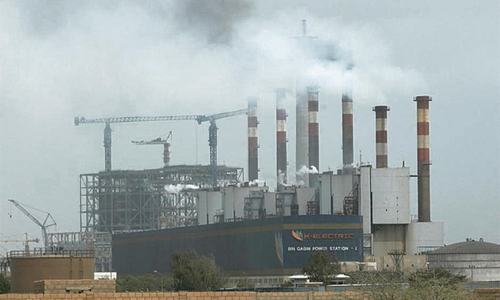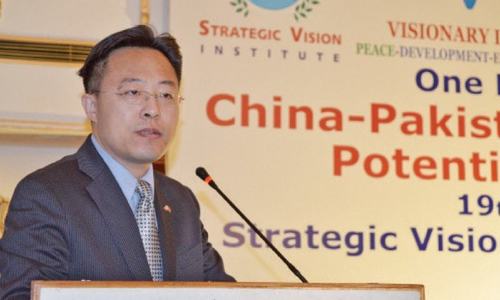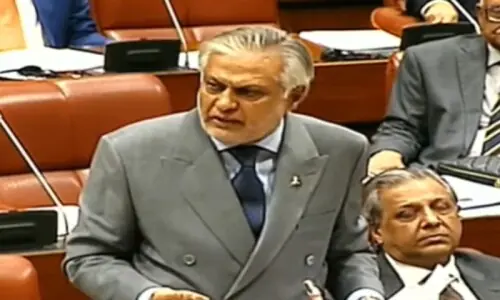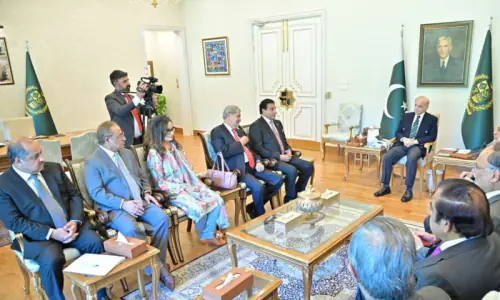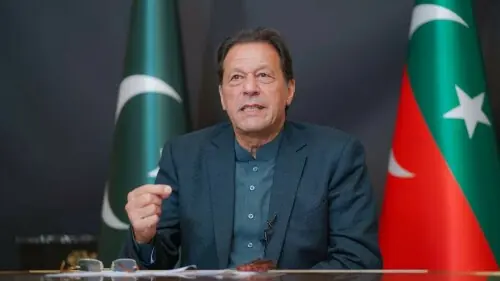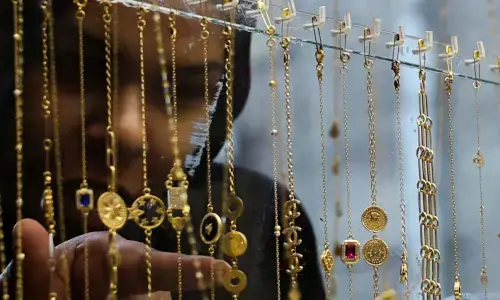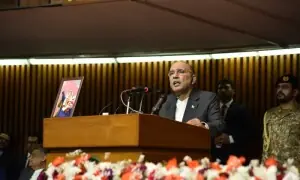KARACHI: Arif Naqvi, the embattled founder of Dubai-based Abraaj Group, allegedly paid $20 million to businessman Navaid Malik for his assistance in securing cooperation of Sharif brothers for K-Electric sale, claims an article published in The Wall Street Journal (WSJ) on Tuesday.
The article alleges Malik was tasked with securing cooperation from Nawaz Sharif — former prime minister — and Shahbaz Sharif – former chief minister Punjab — to help Naqvi sell Abraaj’s stake in K-Electric. The Government of Pakistan owns a 24.6 per cent stake in the Karachi-based power utility.
After reviewing company documents and emails, WSJ claims that Omar Lodhi — partner at Abraaj — in October 2015 informed Naqvi of Malik’s assurance that former chief minister Shahbaz Sharif was “willing to give a strong endorsement” of the K-Electric deal to Chinese bidders.
The email also attributes the businessman saying it is “important for him to share every detail with the brothers and get their blessings as well as their instructions as to how this money [$20 million] should be distributed,” such as “a portion to charity” or “a portion to the election fund kitty”.
Abraaj’s undoing began in February when an article from WSJ reported that investors were questioning the use of their investments destined for company’s healthcare fund. Naqvi set up a healthcare fund by securing commitments from Bill and Melinda Gates Foundation and other Western Institutions. The fund’s investments include Islamabad Diagnostic Centre in Pakistan and hospital chain Quality Care India.
The article claims that, “documents from liquidators, auditors and investors show that Abraaj moved investor money meant for hospitals and companies into accounts that paid its own expenses, salaries and loans. Abraaj founder Arif Naqvi denies any wrongdoing and says the transfers were appropriate.”
The article which highlights some of the known details of the fund’s collapse include using investor’s money to pay for its own expenses, borrowing money against its own stakes in its funds and a highly unstable business model. The article alleges that, “Abraaj has defaulted on more than $1 billion of debt.”
The firm also allegedly cooked its books when Gates Foundation asked Abraaj for bank statements of the accounts that held money for the healthcare fund. Following the request on Nov 30, 2017, Abraaj borrowed $140m from Air Arabia and transferred $29m from its own treasury in to the healthcare fund’s account on Dec 5, 2017. However, after providing investors with a letter from Commercial Bank of Dubai confirming the presence of funds [$170m] in healthcare account, the company repaid $140m to Air Arabia and transferred $10m into Abraaj Treasury on Dec 13, 2017.
During investigations conducted in 2018, “lawyers for investors in the fund wrote to Abraaj stating that the balance of the fund had been just $16,186 on Dec 1, 2017 and $9.98m on Dec 15 and that Abraaj’s transfer of the Air Arabia money to the fund was ‘plainly improper.
The firm was able to attract massive investments for its use of private capital to solve social problems in the emerging markets but has damaged the trust in the entire movement after the fallout. The undoing of the fund has also raised questions on Dubai’s regulatory environment.
The article also alleges that Naqvi transferred more than $200m to his personal accounts, companies linked to him, his family and his former assistant.
Naqvi denies WSJ allegations
Naqvi, however claims that, he was “perfectly entitled to direct” funds from Abraaj and claims that there was nothing untoward about those transfers to his personal accounts or his family. Payments were recorded as his personal liability to the company, Naqvi said.
In his statement, Naqvi said that he denies being part of any conversation that involved a payment to anyone in political office to facilitate the sale of K-Electric. He said Malik was an Abraaj adviser on a variety of activities and that the contract was part of a lengthy discussion about the terms of that role. He said the final agreement “ensured that no conflict of interest would occur.” He said he called it “explosive” due to a reference to the potential sale of K-Electric, which was confidential at the time.
Naqvi said he was entitled to draw down funds from Abraaj, including for his sons and The Modist, an online luxury-clothing retailer started by his former assistant Ghizlan Guenez. No payments were made directly to Ms Guenez, he said. His sons declined to comment. The Modist said Naqvi is a personal investor in the company.
Naqvi said, “Abraaj did not transfer any loans from Air Arabia into the healthcare fund to conceal money missing from the fund since money was always available to the fund on a demand deposit basis.” He said Abraaj used money from the healthcare fund “on a temporary basis for general corporate purposes.”
Published in Dawn, October 18th, 2018


